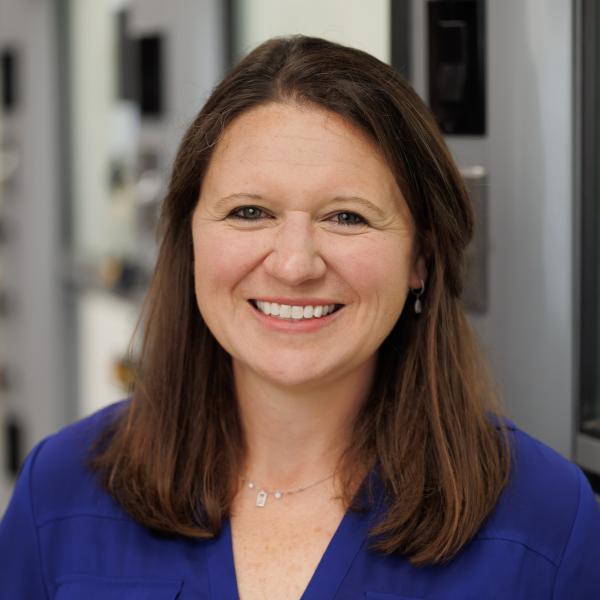
Professor, Chemistry
How long have you been at DelVal?
I’ve been at DelVal since 2010.
What brought you to DelVal?
I was teaching full-time at Kutztown on a temporary, non-tenure line and I wanted a tenure position. I had heard about DelVal, looked into it a little bit more and was like, this is kind of an interesting place with all the agriculture focus.
And the other interesting part was that as a kid, I spent a lot of time on a dairy farm. My father farmed for over 50 years of his life. As a kid, I spent a lot of time in a combine going through the crop fields at harvest and, you know, milking cows. So, coming here kind of took me those ancestral roots as someone who has family that has farmed for generations. I fit right in here, it was kind of odd.
What is your role at DelVal? What courses do you teach?
I teach general chemistry l and ll, so I see all of our first-year students, and I teach analytical chemistry l and ll which is where I get to be with just our chemistry majors. I also teach marine chemistry which is a study abroad course, and finally senior seminar.
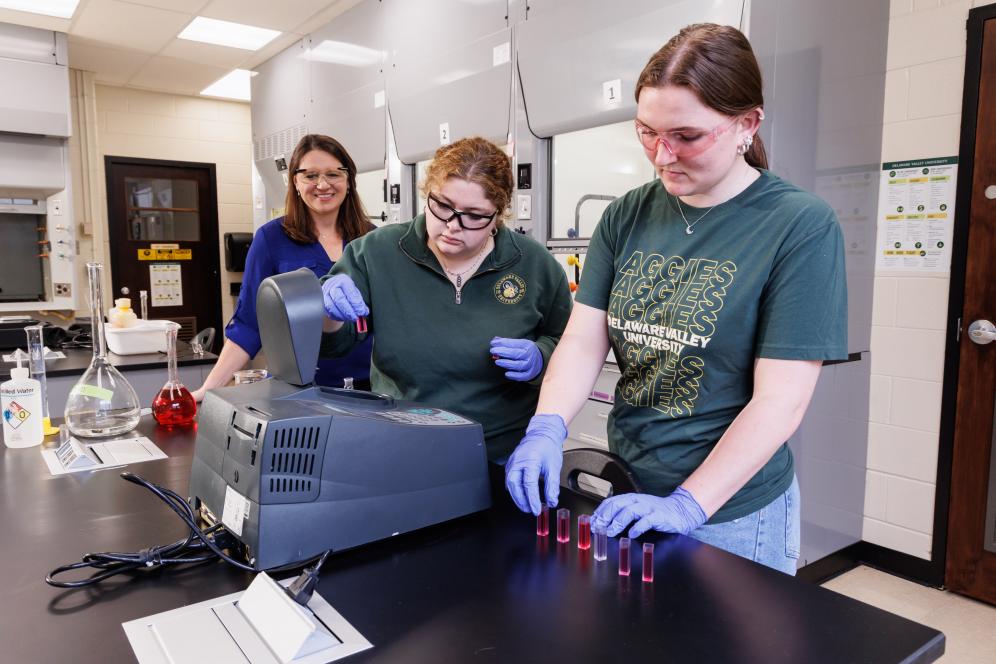
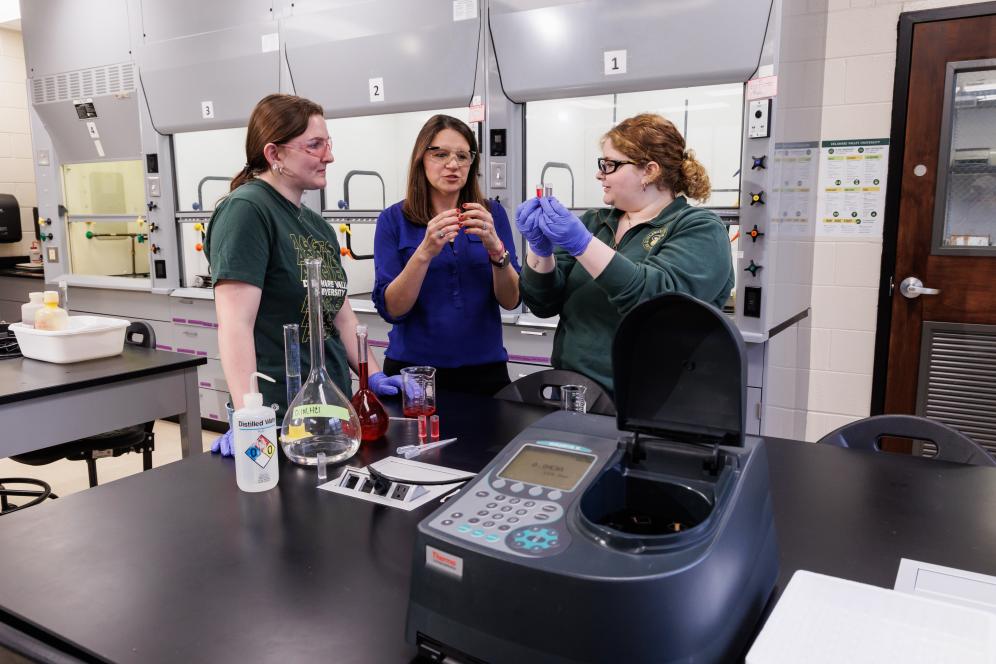
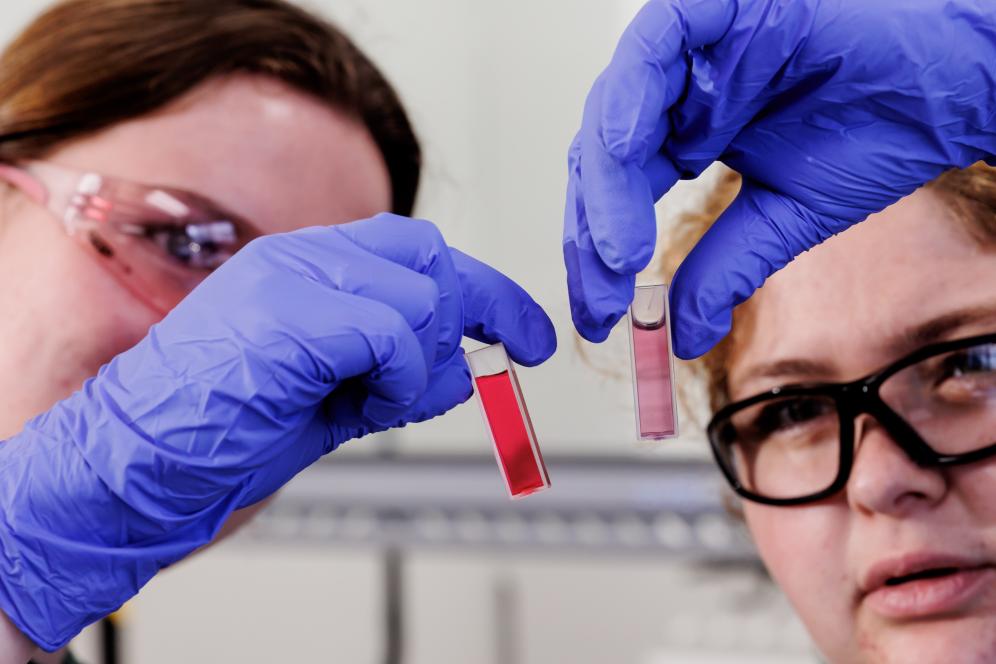
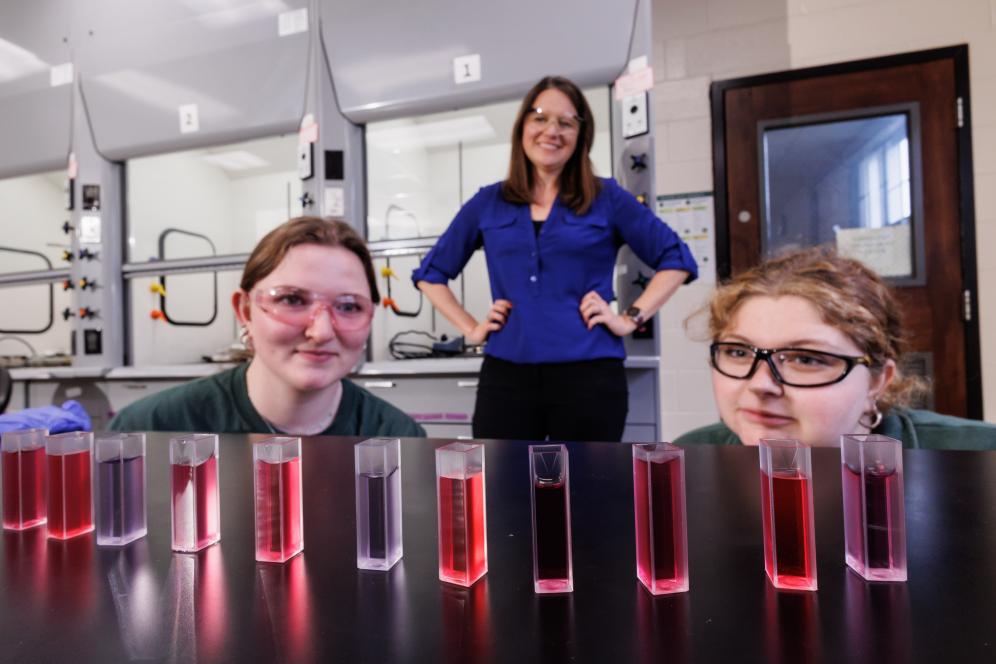
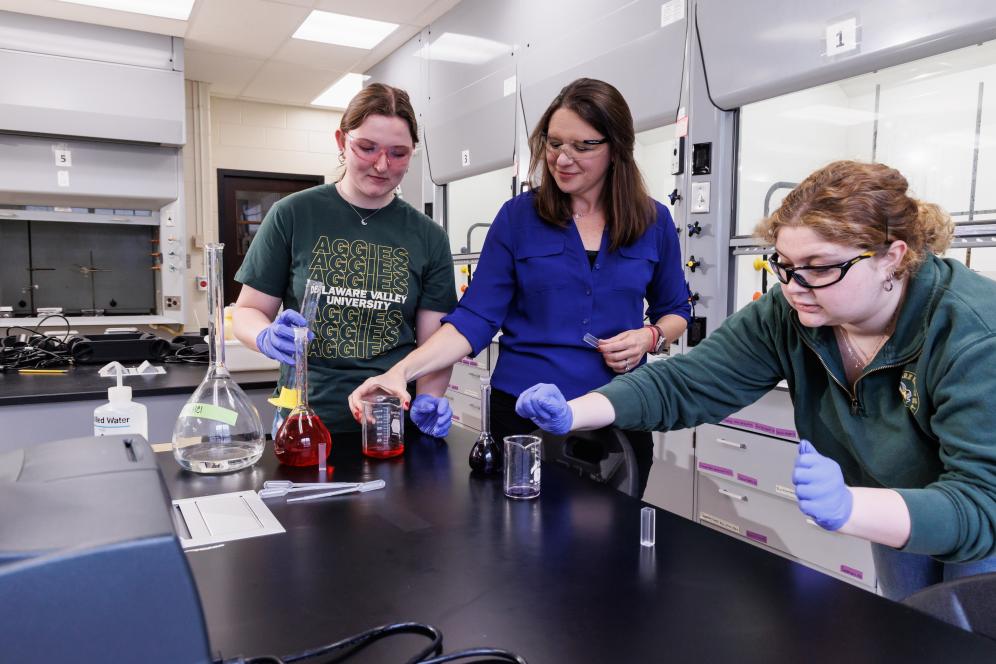
How would you describe the DelVal student?
I think the DelVal student is goal oriented in a way that you don't normally find. Having taught at other colleges, you don't normally find that conviction in a first-year student. I think that feeds into what DelVal is, in that it offers something totally unique here in Bucks County that you don't necessarily think you're going to discover. While you can experience a lot of the things we have at other institutions, you lose a lot of that community feel that we have here because we are that small, tight-knit place.
How do you harness the pillar of experiential learning and apply it in your everyday teaching?
With chemistry being a lab-based discipline, everything we do is hands-on! One experience that really stands out is our marine chemistry trip to the Bermuda Institute of Ocean Sciences (BIOS). BIOS is basically a college campus with a dock. We spend a week there and we go out in the field, which is the beach, and we do water sampling, examine microplastics in the tide line, do some snorkeling to explore the underwater environments, and we help clean up the macroplastics as well. Plus, we get to use BIOS’ really cool atmospheric towers and instruments. The students learn so much on that trip that we just don’t get exposure to in Pennsylvania and in our classroom or lab.
What brings the most satisfaction to your job?
Interacting with students is always at the top of the list. That’s what makes me come in the door every day. I never wanted a job where it would be the same thing every day, and teaching here is never that as I really enjoy the freedom in creating new learning experiences for students. At the same time, as the analytical chemist technology keeps changing, that means chemical instrumentation keeps changing, so I have to keep it current or our students aren't prepared for the workforce.
What are the characteristics of a successful student at DelVal?
Because our students do so many things like taking classes, working on or off campus, completing E360 requirements, involvement in clubs, and all these cool things, I think that highlights their time management skills. The other piece that sets our students apart is their open-mindedness.
Do you have any student success stories that stand out to you?
Over the weekend I got a message from a former student, Brian, who I think graduated in 2017. He was a student that I met in General Chemistry l. He had transferred from Montgomery County Community College to DelVal and I believe he was studying conservation and wildlife management. On our first exam he did okay, but the second exam he got a 37%. I know it was a 37 because he and I still talk about it often. A lot of students will blow that off as something that “just happens,” but Brian took it to heart, and he totally changed. He became more motivated, and from then on, a switch flipped and he turned it around and did well in the course. It wasn’t just general chemistry either, it trickled over into all his other courses as well. He was suddenly more engaged, more interested and more enlightened.
After DelVal he decided to pursue graduate school, and the message that I got this weekend was that his Ph.D. defense at Bowling Green State University was happening in early May and he asked if I would like the Zoom link to watch. So of course, I had to tune in – it was very exciting.
How do you harness the pillar of experiential learning and apply it in your everyday teaching?
With chemistry being a lab-based discipline, everything we do is hands-on! One experience that really stands out is our marine chemistry trip to the Bermuda Institute of Ocean Sciences (BIOS). BIOS is basically a college campus with a dock. We spend a week there and we go out in the field, which is the beach, and we do water sampling, examine microplastics in the tide line, do some snorkeling to explore the underwater environments, and we help clean up the macroplastics as well. Plus, we get to use BIOS’ really cool atmospheric towers and instruments. The students learn so much on that trip that we just don’t get exposure to in Pennsylvania and in our classroom or lab.
If you were to have a YouTube or TikTok channel, what would the subject of your channel?
Probably my running. I run a lot and I’ve done a bunch of marathons. I use it as my time to zone out and think, it’s very meditative for me. If I could find a way to create content while running that would be fun.
About Dr. Langston
Dr. Melissa Langston joined the Delaware Valley University faculty in 2010. At DelVal, she teaches general chemistry, analytical chemistry, and marine chemistry lectures and laboratories. She also mentors students enrolled in the Student Research course. In each of her courses, Dr. Langston works to make chemistry tangible to her students by showing them how chemistry affects their everyday lives. Dr. Langston’s research interests focus on the detection and quantification environmental endocrine disruptors and chemical education. Dr. Langston has presented her research at meetings of the American Chemical Society and internationally.